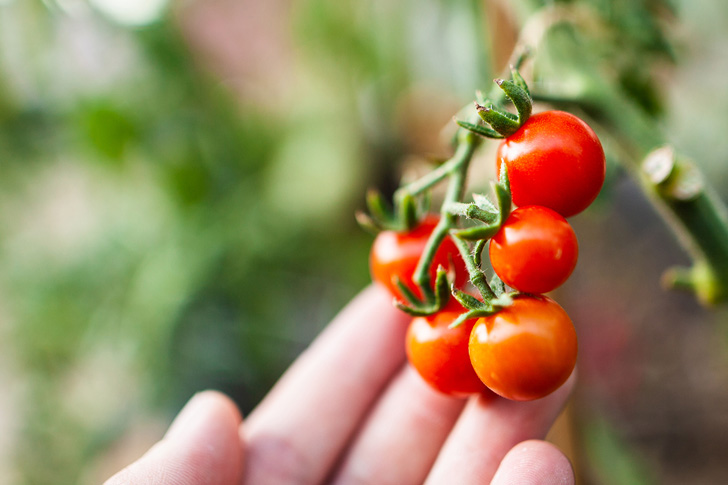Enhancing the Nutritional Value of Your Homegrown Vegetables
When it comes to growing vegetables in our garden, not all varieties offer the same level of nutrition. If we are going to put in the effort, why not focus on cultivating the most nutrient-dense options? This way, we can ensure that our family has access to superfoods, even during times of scarcity or when we need to serve a quick, healthy meal.

As we embark on the journey of growing our own vegetables, it’s essential to prioritize the good, healthy, and freshest produce. Our motivation extends beyond serving consumers; we are doing it for ourselves and our loved ones.
Apart from preparing the soil and giving it the credit it deserves for successful planting, we can choose varieties that have been specifically bred to have higher levels of phytonutrients. Phytonutrients are plant chemicals that protect plants from insects, diseases, droughts, and other forms of adversity. They function similarly to antioxidants, strengthening our immune system, protecting against cancer, heart disease, and supporting healthy vision. Many universities are actively involved in plant breeding programs focused on increasing the healthy antioxidants found in different vegetables.
On this page, we present a selection of vegetables that you can grow healthily from your garden to your table. From tomatoes to zucchini, these are some of the good and most nutritious varieties available:
TOMATOES
‘Valentine’ Grape Tomato: Developed through a collaboration between Penn State and Johnny’s Selected Seeds, this tomato is renowned for its high lycopene content. Lycopene is an antioxidant that specializes in reducing LDL cholesterol and lowering blood pressure.
‘Heath Kick’ Red Plum Tomato: Contains 50% more lycopene than a regular tomato.
‘Tasti Lee’ Tomato: Developed by the University of Florida, this tomato weighs 6 to 9 ounces and boasts 40% more lycopene. It is also heat-tolerant, making it suitable for sunny areas.
‘Mighty Sweet’ Grape Tomato: Known for its high levels of vitamin C, beta-carotene, and lycopene.
‘High Carotene’ Tomato: With a maximum weight of 3 ounces, this tomato contains 2 to 3 times more beta-carotene than an average tomato. Beta-carotene, a red-orange pigment, not only gives color to the fruit but also protects against heart diseases, viral infections, cataracts, and cancer.
‘Power Pops’ Cherry Tomato: This small red cherry tomato contains more carotene and lycopene than most varieties. It grows to a height of 9 to 12 inches and is perfect for containers or hanging baskets. It is also a favorite snack for many.
‘Caro Rich’ Tomato: An orange-yellow variety weighing 8 to 12 ounces and containing 10 times more beta-carotene than a regular red tomato.
CARROTS
‘Purple Dragon’ Carrot: This carrot features purple skin and a sweet orange core. It is also known for its higher lycopene content seed to regular orange carrots.
‘Atomic Red’ Carrot: A deep red carrot that serves as a good source of lycopene.
‘Candysnax’ and ‘Sugarsnax’ Carrots: These varieties are bred to contain high levels of beta-carotene, contributing to the health benefits of these carrots.
POTATOES
‘Adirondack Blue’ Potatoes: Apart from being a good source of vitamin C, these potatoes also contain anthocyanins. Anthocyanins are known for their strong anti-inflammatory properties, promotion of heart health, ability to fight viral diseases, and support for cognitive function.
CAULIFLOWERS
‘Violetta’ and ‘Graffiti’ Cauliflowers: Both of these purple cauliflowers contain high levels of anthocyanin. They are good consumed raw, as cooking diminishes their color and potency.
‘Cheddar’ Cauliflower: This variety develops 8-inch heads in about 70 days and contains 25 times more beta-carotene than white cauliflower. Cooking intensifies its color.
ZUCCHINI
‘Raven’ Zucchini: Developed at the University of Wisconsin, this variety contains four times more lutein than standard zucchini. Lutein is a vision protector, preventing cataracts and macular degeneration.
By focusing on these nutrient-rich varieties, we can ensure that our homegrown vegetables are packed with essential vitamins, antioxidants, and phytonutrients. Enjoy the process of growing and savor the benefits of a healtauf dieser Seite and more nourishing harvest for you and your loved ones.







Recent Comments